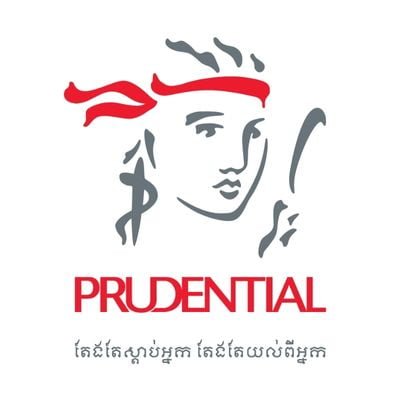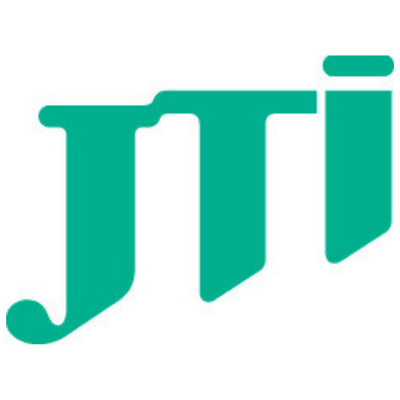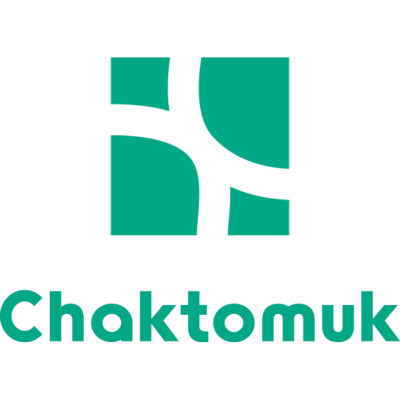The International Business Chamber’s September 2023 Regular General Meeting dubbed “Talk of the Town” invited five leading industry experts to discuss the current and future landscape of Cambodia’s key business sectors, emphasizing trends in telecom, insurance, tourism, and beverages.
The panel speakers and moderator were:
- 𝗠𝘀. 𝗬𝘂𝗻𝗶 𝗟𝗲𝗲 𝗛𝗲𝗮𝘁𝗵𝗰𝗼𝘁𝗲 – CEO – EZECOM
- 𝗠𝗿. 𝗦𝗮𝗻𝗷𝗮𝘆 𝗖𝗵𝗮𝗸𝗿𝗮𝗯𝗮𝗿𝘁𝘆 – CEO – Prudential Cambodia (Cambodia) Life Assurance PLC
- 𝗠𝗿. 𝗗𝗮𝗿𝗲𝗻 𝗢𝗻𝗴 – Managing Director – Pernod Ricard Cambodge
- 𝗠𝗿. 𝗖𝗮𝗿𝗹 𝗦𝗹𝗮𝗱𝗲𝗻 – General Manager – Hotel KVL
- 𝗠𝗿. 𝗝𝗮𝗺𝗲𝘀 𝗥𝗼𝗯𝗲𝗿𝘁𝘀 (Moderator) – Partner Advisory – KPMG

Cambodia’s Telecoms Regulations Continues to Rapidly Develop
The ongoing transformation of Cambodia’s telecommunications sector under His Excellency Chea Vandeth, Minister of Post and Telecommunications, continues to draw attention from industry stakeholders. Ms. Yuni Lee Heathcote, CEO of EZECOM, spoke on the subject, applauding the Minister’s leadership. “His policies continue, under the new government.” she stated.
The National Internet Gateway (NIG), proposed in 2022, that requires Cambodian ISPs to route all internet traffic through a single, government-controlled point, was brought up.
In addressing this query, Yuni noted that “the ministry is currently taking learnings from both public and private sector feedback to ensure that they are getting the right advice.” According to her, the initiative appears to be currently deferred, with the government keen on aligning it with the nation’s long-term digital economy objectives.
Alongside telecom developments, data protection regulations are also under development. Cambodia currently lacks comprehensive data protection legislation, but moves are afoot to change that. The Ministry of Post and Telecommunications (MPTC) recently announced plans to prepare a draft personal data protection law after completing its draft cybersecurity law.
Yuni said the MPTC is “again seeking more feedback.” However, she emphasized that the data localization component, which mandates storing and processing data within Cambodia, is clear. This, she said, “will impact every industry, as well as local users using international sites.” According to Yuni, the proposed regulations are designed with the “long-term goal of user data protection and to ensure that it fits with best practices.”
James Roberts, Partner Advisory at KPMG, who was moderator for the discussion offered a broader view on the changing regulatory landscape for businesses in Cambodia. Reflecting on the rising number of new laws and regulations, he stated that this is something “all business owners must get used to.” Over the past 20 years, Cambodia has seen relatively light regulation by the government, a trend that is rapidly shifting. “Over the last 20 years, there has been a very light touch by the government, but this is now rapidly changing,” he said.
James concluded. This evolution signifies that, for both telecom providers and businesses across various sectors, adapting to an increasingly complex set of rules will be vital for sustained growth and compliance in the Cambodian market.
Trust and Education Remain Key to Growing Insurance Penetration
Cambodia’s growing insurance industry was next in the spotlight, with an industry leader weighing in on its challenges and opportunities. Mr. Sanjay Chakrabarty, CEO of Prudential (Cambodia) Life Assurance PLC, highlighted the sector’s potential, especially considering the vulnerabilities of Cambodia’s informal workforce. “Insurance in Cambodia is still a fledgling industry in Cambodia but a very important one,” he said.
Sanjay pointed out the crucial role that insurance is playing in large infrastructure projects through long-term investments. “Prudential has invested US$5 million in guaranteed bonds of the Cambodia Airport Investment Co Ltd (CAIC) for supporting the development of the Techo International Airport,” he disclosed.
He also emphasized the challenges facing the sector, particularly regarding trust and awareness. For Sanjay, the key is educating the population and fostering financial literacy, particularly through measures like making third-party automobile insurance mandatory.
The conversation around insurance in Cambodia also turned toward the sector’s digitization and asset management. Sanjay revealed that the Insurance Regulator of Cambodia is encouraging the industry to develop more digital products for wider provincial reach. “There is a lot of interest in our assets under management,” he said, mentioning the need for the industry to access good long-term investments to help them design products. The industry’s growth, according to him, is “still mostly around education and building awareness,” a mission that he believes would benefit from increased government involvement.
Offering his perspective, James addressed the broader impacts and legitimacy of the insurance industry. He opined that, while some might be skeptical, “the products and services that the insurance industry offers are incredibly important for people managing risk with planning retirement and savings plans.” James also discussed how investments from the insurance sector contribute to building critical infrastructure across Cambodia.
Additionally, he pointed out that Cambodia’s recent removal from the Financial Action Task Force (FATF) ‘greylist’ enhances its appeal for foreign investment. “This puts Cambodia in a stronger position for foreign investment under a compliance and risk point of view,” he concluded. As both sectors continue to evolve, collaboration and innovation appear to be key drivers for developing Cambodia’s regulatory landscape and insurance industry.
Working To Better Control the Cambodian Narrative Abroad
Cambodia’s tourism sector, still reeling from the pandemic’s impact, is seeking innovative ways to rejuvenate and rebrand itself. Mr. Carl Sladen, General Manager of Hotel KVL, provided a candid assessment of the sector’s prospects for 2024. “While there has been some recovery in 2023, we are certainly a long way from the pre-pandemic levels of 2019,” Carl remarked. He noted that, as an independent property, his hotel is focused on market segments that are showing signs of positive recovery and delivering personalized experiences in an over supplied market based on current and upcoming levels of demand.
“For us, the Chinese market is very important; however, we have also had 26 different nationalities over the last month,” he said, emphasizing the need for a diverse customer base. According to Carl, Cambodia needs to reposition itself as a standalone destination (niche tourism opportunities including golf, medical tourism, and weekend getaways from regional source markets) rather than an “add-on” to trips to neighboring countries. He also highlighted the changing demographics of tourists, observing that recent visitors have mainly been Thai and Vietnamese, focused on border town gaming venues rather than traditional tourist hotspots like Siem Reap and Phnom Penh. “The Indian market is the real up-and-comer for us, but we are lacking direct, regular, and affordable flights to Cambodia,” Carl added.
Carl further underscored the importance of government involvement in marketing Cambodia’s tourism sector. “Reflecting on countries such as Thailand and Malaysia, their respective governments have invested heavily in big international tourism campaigns,” he said. He stressed that Cambodia should take similar actions, particularly because reliance on a single market, like China, can be perilous. “When the tap got turned off, for many hotels in the market there was just no business model anymore,” he noted.
In line with this, Carl called for “new fresh ideas about marketing Cambodia, including the introduction of an active Tourism Board (via public/private sector collaboration) to help showcase the variety of options for first time and returning (spreading the offers into regional areas and niche tourism options) travelers to the Kingdom,” He mentioned a recent tourism brainstorming event which included information shared relating to preconceptions from travelers prior to arrival and post arrival. Thus encouraging the government to help re brand the “destination image” of Cambodia – increasing focus on areas that positive post arrival changes in image – including local people/lifestyle/safety/atmosphere/cleanliness and the experiences they could enjoy in the country.
James wrapped up the discussion by pointing to the broader issue of narrative control. “Cambodia not controlling its own story and narrative has been a long-term issue,” he said. According to James, other countries and media outlets often shape Cambodia’s image, which can be disproportionately negative. He emphasized the need for the Cambodian government to take control of the country’s narrative, especially when it comes to its tourism sector.
“We need the government to take control and steer the narrative,” James concluded, echoing the sentiment that for Cambodia’s tourism sector to truly recover and flourish, a multi-faceted approach involving government initiatives and diversifying market strategies will be crucial.
A Prestige Market with Increasing Spending Power
In the wake of recent elections and reduced tourism, coupled with poor weather conditions affecting the food & beverage sector, market insiders remain optimistic about long-term prospects. Mr. Daren Ong, Managing Director of Pernod Ricard Cambodge, emphasized this sentiment, stating that despite current challenges, his group views Cambodia as a long-term investment.
“From a group perspective, we see the Cambodian market as an investment market, and we are the only official brand affiliate for imported wines and spirits in Cambodia,” Daren noted. He highlighted that as early entrants in the Cambodian market, Pernod Ricard is working with the government to introduce educational and regulatory changes, such as implementing a legal drinking age of 18. According to Daren, the aim is to focus on the next generation and foster dialogue between public and private sectors. “We are also very positive about the new generation of Cambodian leaders coming through with a more international outlook,” he added.
This sentiment suggests that the evolving dynamics in Cambodia are not just about market maturation, but also about a generational shift with greater awareness and higher educational levels. Daren shared that this trend has led him to reposition Cambodia as a “prestige market,” backed by an increase in high-end domestic consumption and entrance of luxury fashion and hotels.
Daren also discussed the need for compliance and sustainability in the Cambodian market. “For us, it’s about doing business compliantly and having more sustainable consumer protections,” he said. Drawing from his previous experience in Vietnam, Daren expressed that Cambodia is following a different trajectory. “I was advised to focus on mass market / entry-level segment with the overwhelming majority of alcohol purchased being beer. However, over the last few years, high-end customers are spending a lot,” Daren observed. According to him, brand recognition and loyalty are growing, something he believes Cambodia has traditionally lacked.
Wrapping up the discussion, James offered a broader perspective on the Cambodian economy. According to James, Cambodia stands out demographically, offering a unique and bullish outlook for the next 20 years across various sectors. “Cambodia is one of the few countries in the world where the demographic pyramid is the right way up,” he stated. James also emphasized the significant spending power in Cambodia, noting, “Cambodian spending power per capita is higher than Vietnam despite the recent history of the country.”
He cited specific figures like “17x more Rolls Royce’s than Paris per capita” and “the highest add-on spend for them in the world,” as indicators of this spending power. In James’ view, the opportunity for growth and investment in Cambodia is ripe and “just needs to be grabbed.” This underscores the potential that both experts see in Cambodia’s younger generation and its burgeoning economic landscape.
The IBC September RGM event served as an enlightening platform, shedding light on key sectors that are pivotal for Cambodia’s future growth. Each sector, be it telecom, insurance, tourism, or food & beverage, offers unique challenges and opportunities. As Cambodia undergoes rapid transformations, the collective insights from the event make it clear that collaboration, innovation, and a proactive approach to regulatory changes will be vital for sustaining growth and attracting investment in the coming years.









